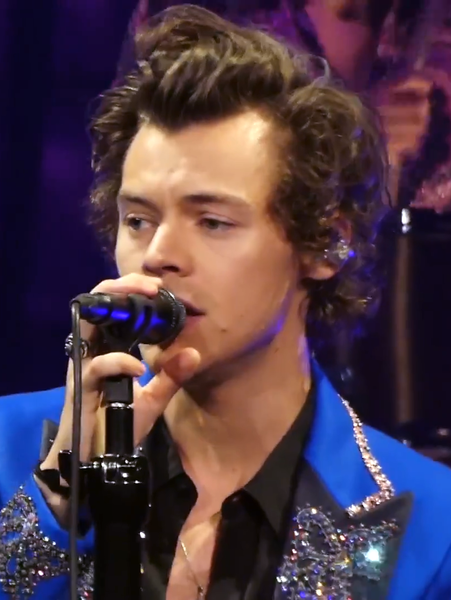Harry Styles’ vogue cover triggers the vocalisation of people’s opinions on masculinity


Adorned in a glorious Gucci ball gown and jacket, Harry Styles has graced Vogue’s December cover.
Styles is the first-ever solo male to appear on the American magazine’s cover in its 127-year history, marking a significant milestone for the fashion publication.
The styling choices of this photoshoot, which featured an eclectic mix of couture skirts, layered overcoats and billowy pants, have created quite the stir amongst a handful of hateful people on the internet since its release.
Conservative author Candace Owens took it upon herself to voice her un-asked-for “fears” about Styles’ Vogue spread into the abyss of the right-wing echo-chamber that is her Twitter account.
“There is no society that can survive without strong men. The East knows this. In the west, the steady feminization of our men at the same time that Marxism is being taught to our children is not a coincidence. It is an outright attack. Bring back manly men,” Owens said in a tweet.
Ben Shapiro, a political commentator who previously balked at the lyrics to Cardi B’s “WAP,” also decided to weigh in with his concerns regarding the singer’s clothing choices.
“Masculinity and femininity exist. Outward indicators of masculinity and femininity exist in nearly every human culture. Boys are taught to be more masculine in virtually every human culture because the role of men is not always the same as the role of women,” Shapiro said in a string of crotchety-toned tweets.
The only thing that makes a man a man is whether or not they choose to identify as one.
The notion that a male wearing a dress is one of the most offensive things to happen in 2020 (at least in the eyes of certain conservatives) is laughable, close-minded and truly bizarre.
The music scene has been dominated by men challenging traditional expressions of gender for decades.
David Bowie, Prince, Mick Jagger, Elton John, Freddie Mercury, Kurt Cobain—any of these performers ring a bell? They are just a handful of infamous, chart-topping artists who centered a significant portion of their creative images on blurring the lines between femininity and masculinity while embracing non-conformitive androgyny.
Funnily enough, the sanctity of manhood was never compromised because Bowie assumed the role of Ziggy Stardust and donned a skintight catsuit with a full face of makeup. These artists were globally regarded as sex symbols (much like Harry Styles is now) who left long-lasting impacts on the history of modern music.
Masculinity is a concept, not a designation.
It’s important in these conversations about challenging the performance of binary gender and dismantling toxic masculinity, to also acknowledge that Styles is not the first person to break these kind of boundaries.
While the praise for Styles, which I am happy to see seems to outweigh the sputtering criticisms being directed at his “manliness”, is certainly positive, the underrepresentation of different identities is necessary to recognize in this context as well.
An Instagram post shared by Alok Vaid-Menon touches on this notion perfectly: “We can both acknowledge this unprecedented moment while also remembering that it could only happen because of the resistance of trans femmes of color…. I want a world where everyone— regardless of their gender—can wear whatever they want.”
We should be building people of all gender identities up and giving them platforms to express their individuality in ways that aren’t confined and limited by conventional social standards.
If the world remained stagnant with what is deemed “acceptable” in the eyes of society, women would not be able to wear pants.
And the prerequisite for being a decent person doesn’t equate finding Harry Styles or anyone wearing a dress attractive. It’s accepting that they as individuals have a right to dress as they please and should not be needlessly harassed for doing so.
Working through the insecurities and intolerances that likely fuel the kind of malicious commentary promoted by public figures like Owens and Shapiro is necessary.
Hopefully, it will continue to push people to engage more critically with why those assumptions and prejudices exist to begin with so that these constructs can continue to be disassembled for good.
Harry Styles, I’m quite sure, doesn’t give a fuck about what other people think of him and his fashion sense. He looks, as Alexandria Ocasio-Cortez (AOC) has pointed out, “bomb.”


